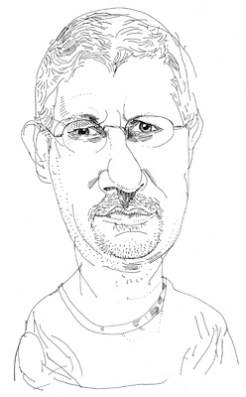Virtual Memories Show 230: Patty Farmer
Podcast: Play in new window | Download
Subscribe: Spotify | TuneIn | RSS | More
“Hefner’s genius was in always getting the very best people, whether in entertainment, management, editing, or cartooning: he went directly to the top.”
 How did Patty Farmer go from businesswoman to historian of the Playboy empire? “I don’t do well when I’m bored,” she tells me, as we talk about her new book/oral history, Playboy Laughs: The Comedy, Comedians, and Cartoons of Playboy
How did Patty Farmer go from businesswoman to historian of the Playboy empire? “I don’t do well when I’m bored,” she tells me, as we talk about her new book/oral history, Playboy Laughs: The Comedy, Comedians, and Cartoons of Playboy. We get into the cultural impact of Playboy (the clubs, resorts and jazz festivals, not just the magazine), my own history with same, the process of becoming friends with one’s interviewees, gaining access to Hugh Hefner’s immense archives, combining comedians and cartoonists into a single volume, the amazing work Hef did as a cartoon editor, how she swung from business deals to entertainment history, and more! Give it a listen! And go buy Playboy Laughs
!
“My talents are really in the business sector, but I took those talents for organization and cognitive thinking and applied them to what I want to do. I want to be up there on stage, but i know I can’t, so this is the next best thing.”
Enjoy the conversation! Then check out the archives for more great episodes!
Lots of ways to follow The Virtual Memories Show! iTunes, Twitter, Instagram, Soundcloud, Facebook, Tumblr, and RSS!
About our Guest
 Author and historian Patty Farmer is a businesswoman and former model, and is acknowledged as the leading expert on the comedians, music (particularly jazz), entertainment and the entertainers of Playboy. In her current book, Playboy Laughs
Author and historian Patty Farmer is a businesswoman and former model, and is acknowledged as the leading expert on the comedians, music (particularly jazz), entertainment and the entertainers of Playboy. In her current book, Playboy Laughs, she chronicles—through hundreds of personal interviews—the careers and personalities of the country’s comic community. Terry Teachout, in a review for the Wall Street Journal, states, “Patty Farmer goes a long way toward answering the question of how jazz and Playboy acquired its cultural cachet.” Patty’s followed the entertainment industry as an avid fan and archivist all her life, and has spent the last decade writing about some of our most significant cultural institutions and personalities.
Credits: This episode’s music is Nothing’s Gonna Bring Me Down by David Baerwald, used with permission from the artist. The conversation was recorded at Ms. Farmer’s office on a pair of Blue enCORE 200 Microphones feeding into a Zoom H5
digital recorder. I recorded the intro and outro on a Heil PR-40 Dynamic Studio Recording Microphone
feeding into a Cloudlifter CL-1
and a Mackie Onyx Blackjack 2×2 USB Recording Interface
. All processing and editing done in Adobe Audition CC
. Photos of Ms. Farmer by … somebody. She wouldn’t let me take her picture, so there’s nothing on my instagram.



















